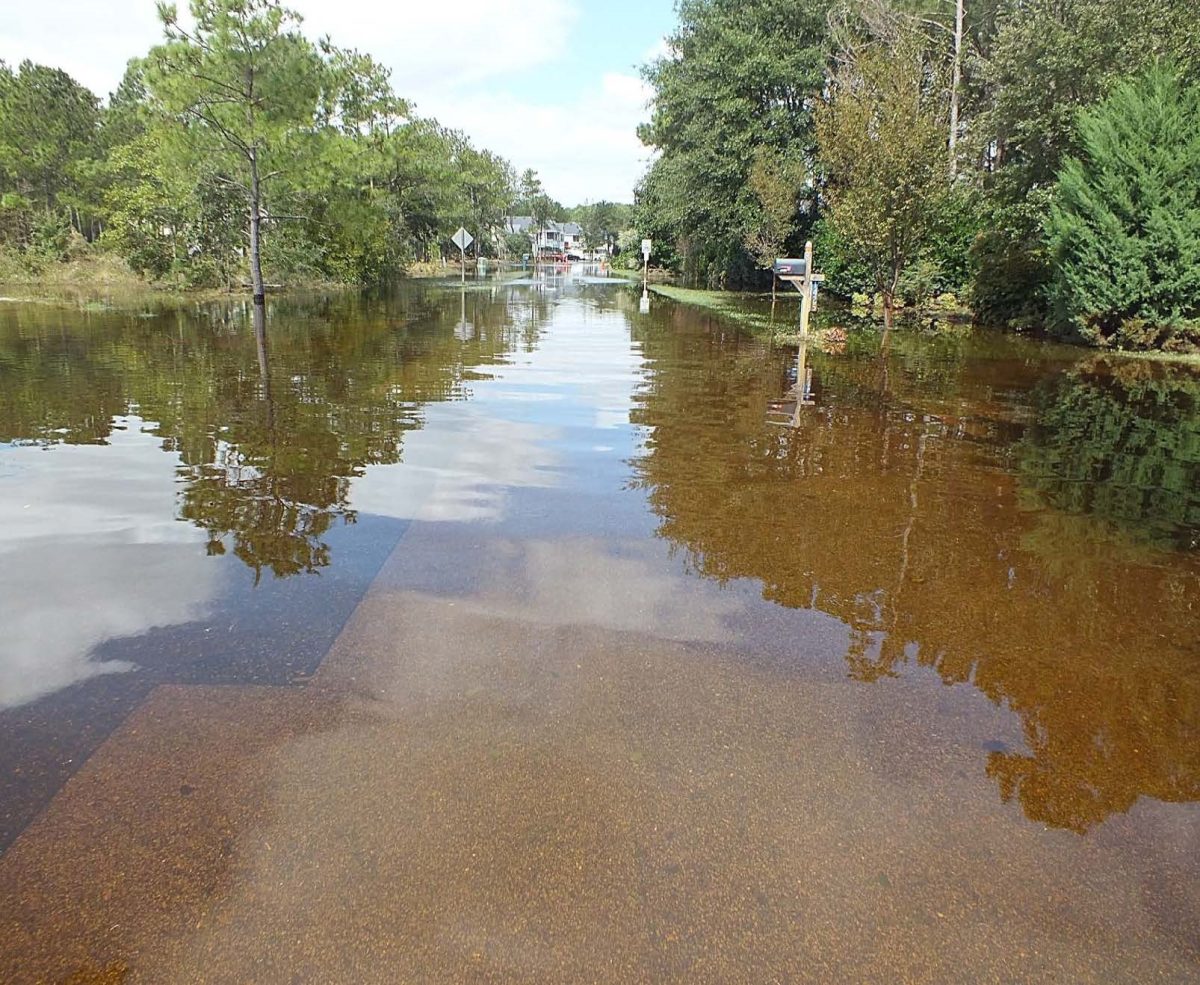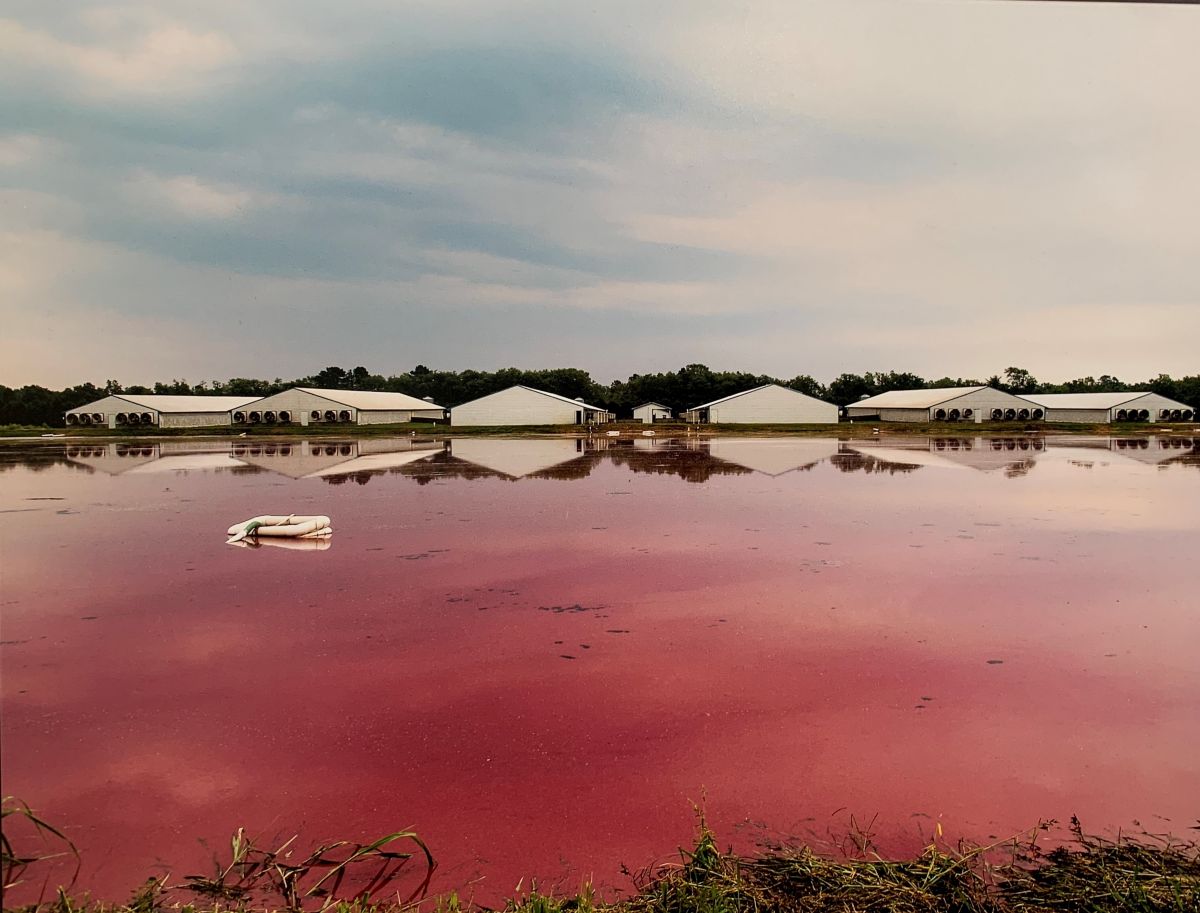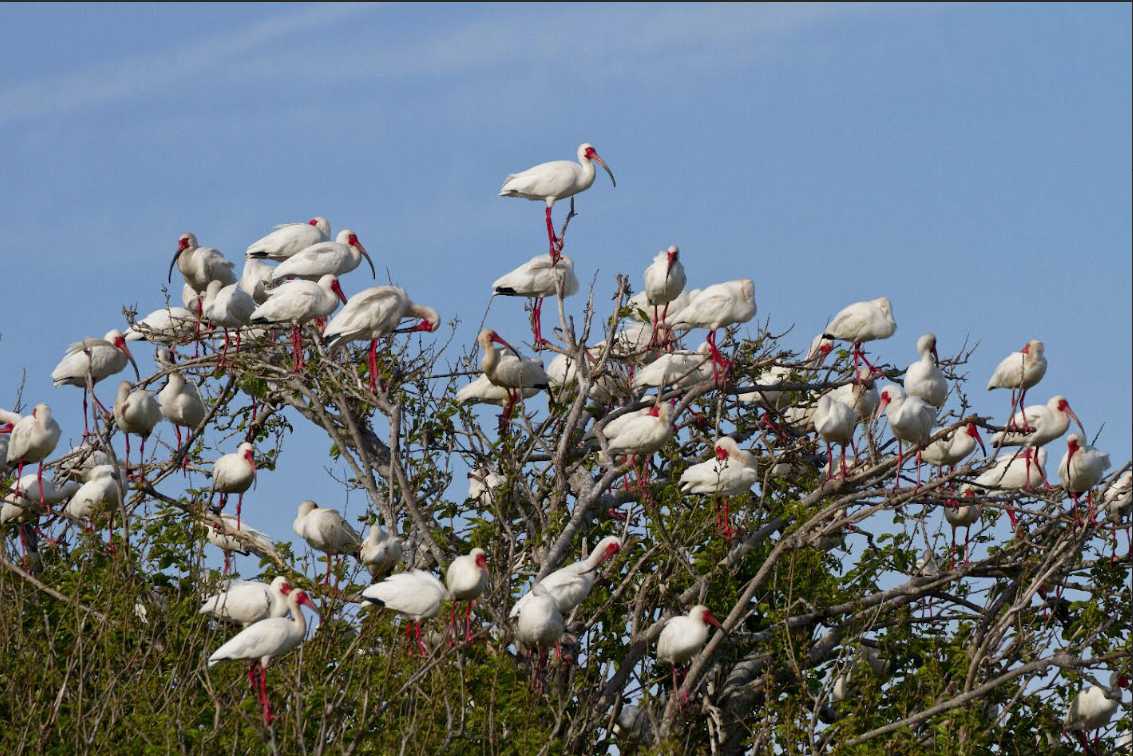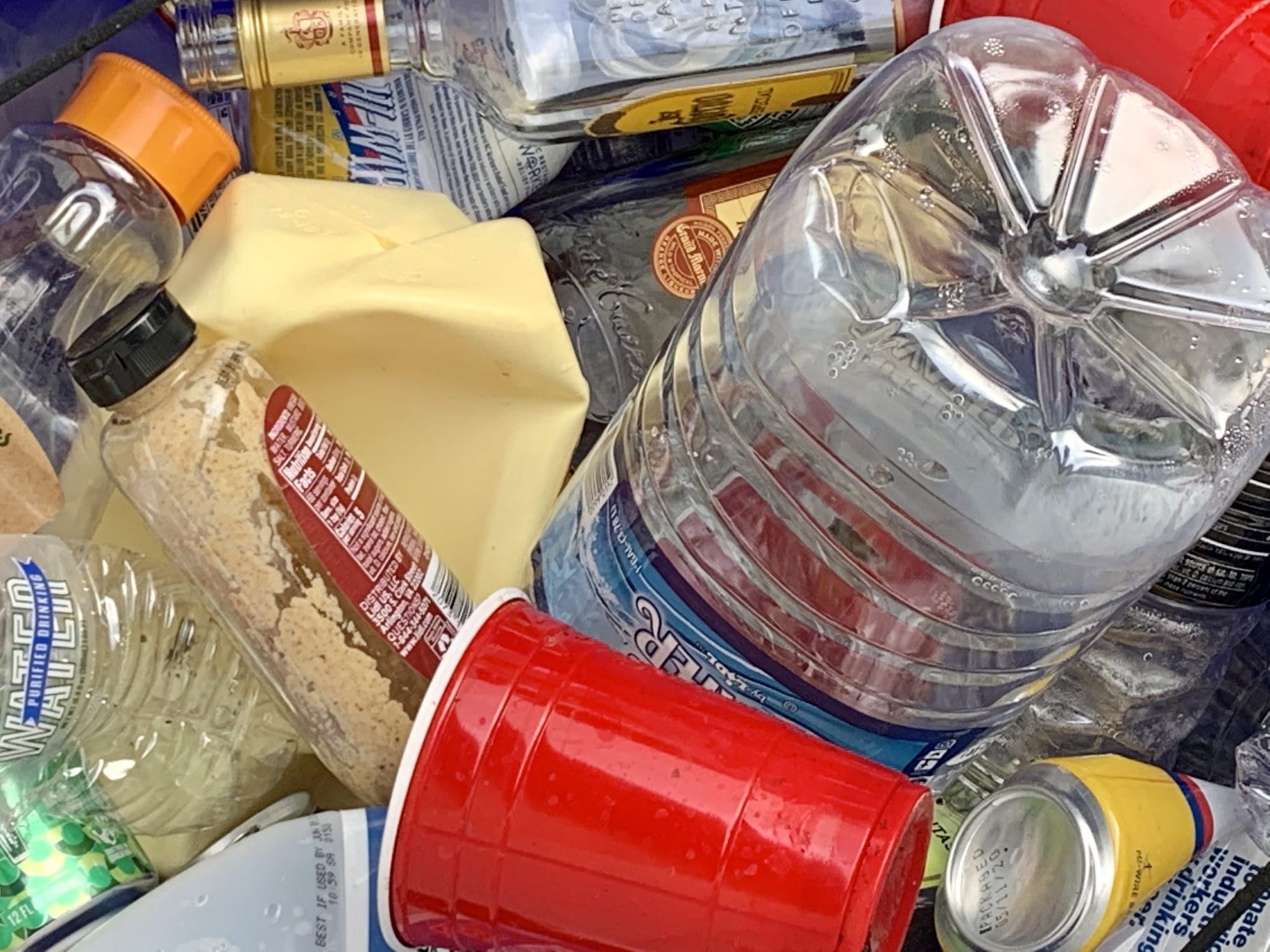BEAUFORT — Female students in high-level math and science classes score on par with their male peers, according to the National Science Foundation, but although women make up half of the nation’s college-educated workforce, only 29 percent of the science and engineering workforce are female. One organization on the North Carolina coast is working to change that.
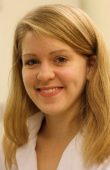
Sixth- through eighth-grade girls will get an opportunity on April 1 to learn from women in science, technology, engineering and math fields during Girls Exploring Science & Technology, or GEST, a one-day event at the Duke University Marine Lab in Beaufort. Participants will join in hands-on activities and learn about different avenues of science and research.
Supporter Spotlight
Female role models can be especially helpful for girls interested in science and technology fields, according to new research by Tulane University, and the day’s schedule includes a keynote address in the morning from local female scientist Dr. Vicky Thayer, coordinator of the North Carolina Central Coast Marine Mammal Stranding Network. Activities related to female scientist’s fields of research are also planned, and at the end of the day, students can choose to attend either a panel discussion where area female professionals discuss their own personal journeys in science and engineering, or a session about opportunities for high school and college.
Sarah Loftus, a doctoral student at Duke Marine Lab, is the GEST planning team leader. She explained that the goals for the event are to expose young women to science, technology, engineering and math, or STEM, resources, role models and activities available in eastern North Carolina.
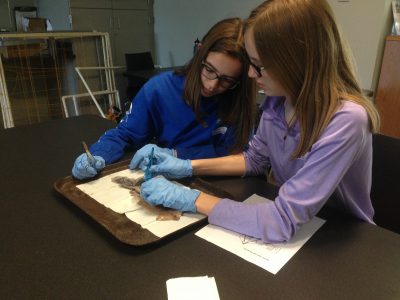
“The first GEST event occurred last year, and was attended by over 100 local middle-school students,” Loftus said. “The event is modeled after other similar events that aim to expose young women to STEM fields and role models. For example, it is modeled after the extremely successful FEMMES (Females Excelling More in Math, Engineering, and Science) Capstone event that happens annually on Duke’s main campus in Durham. This event brings in hundreds of fourth- through sixth-grade girls from the Durham community, who attend activities led by female graduate students and faculty.”
Loftus explained that participants can choose their activity preference, and organizers try to place each student in at least one of their activity preferences. So far for this year, the activities include squid dissections; whale and dolphin identification; using drones for marine science; water treatment; sea urchin development; map making; electrical circuits using paper, copper tape and surface-mounted LEDs; and algae cultivation.
During the first event in 2016, the activities helped make important connections for the participants. Loftus received this message from a student’s parent: “Just wanted to let you know how much my daughter enjoyed the GEST event on Saturday. She came home so excited and was still talking to us about things she got to do and learned even this morning!”
Supporter Spotlight
“It’s also important for girls to see and meet female scientists and engineers to affirm in their minds that this is a career field they can pursue,” Loftus said.
The event is organized by a team of volunteers including graduate students and staff at the Duke Marine Lab, the University of North Carolina’s Institute for Marine Science in Morehead City and the regional Girl Scout council. Event volunteers also come from Duke University; UNC; the National Oceanic and Atmospheric Administration; North Carolina State University; Naval Air Systems Command; the North Carolina Coastal Federation; and the state Department of Environmental Quality. These volunteers help by guiding girls to their activities, as well as designing, planning and leading activities.
Kristine Roberts, manager of the Joint Engineering Technical Team, or JETT, at Marine Corps Air Station Cherry Point, is participating for her second year as a volunteer team leader. Roberts will lead the elementary circuit activity, if needed.
“I volunteered for GEST last year as a group leader. I was very impressed by the interest level of the students and the quality of activities available,” Roberts explained. “We programmed code in an open-source program, dissected a squid at NOAA and made liquid nitrogen ice cream at the Duke Marine Lab. They also had an entire room set up with living creatures the students could touch and see close-up. Throughout the day, female scientists and engineers were available for the students to ask questions. There was also a panel made up of successful women that fielded questions from the students. It was a very exciting day, even for me.”
In her role at Cherry Point, Roberts supervises entry-level engineers in a developmental program, so participating in GEST is important for her on both professional and personal levels.
“A large part of my job is recruiting and retaining engineers. From a retention perspective, recruiting from local talent is a major plus. GEST is a great example of an outreach activity dedicated to exposing local students to jobs opportunities in the STEM fields,” she said. “On a personal level, I attended similar events when I was younger and exploring the sciences. I realize the benefit these events can have in guiding young minds. It’s an honor to volunteer for similar events now that I’ve found my career path.”
Roberts said she hopes GEST connects the young females’ interest in STEM fields with a job or degree later in life.
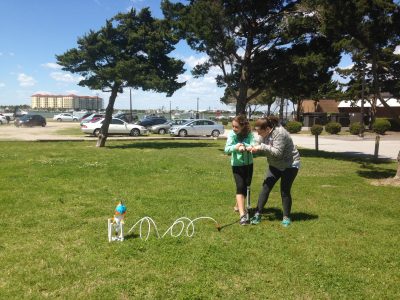
“Growing up, I always had an interest in math and science, but it was often difficult to determine what that would mean long term. If some of them end up working as engineers at Cherry Point one day, even better,” she added.
Ginny Crothers, a second-year master’s student at Duke Marine Lab, is working on a degree in coastal environmental management, and also helping with GEST this year.
“I’m getting involved with GEST, because honestly, I wish I had been more encouraged to explore my love for math and science as a kid. Luckily I happened upon this path, but a little encouragement can go a long way,” Crothers said. “My group is leading an activity in mapping called, “Using Maps to Tell Stories”. In my degree here at Duke, I’ve fallen in love with GIS (geographic information systems) and mapping. It’s such a cool way to visualize data — to tell stories of the environment, of people and communities, and how it’s all connected.”
Registration for GEST is open now and can be completed online. Participating students must also hand in a signed permission form to participate in the event, which can be turned in during event check-in.



